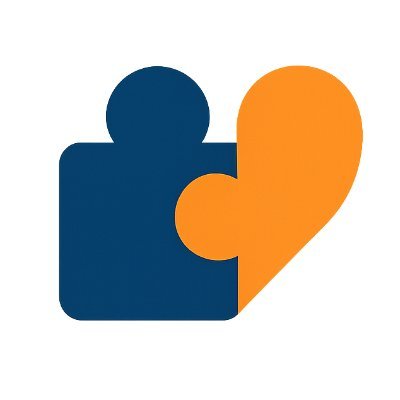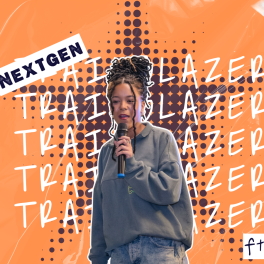
Autism and me — it’s a complex and deeply personal relationship. For the longest time, I didn’t understand why I struggled with things that seemed effortless for others. Social interactions, loud noises, crowded spaces, unpredictable situations — they all felt like insurmountable obstacles. I spent years masking, desperately trying to fit into a world that wasn’t built for people like me.
The effort was exhausting, and the return felt unfairly small. It left me feeling resentful and frustrated, as I had tried so hard but received so little in return.
My unique and interesting gifts and quirky personality weren’t celebrated in any meaningful way. I had such a hard time making friends, but at the time, I felt nothing for them. I didn’t understand what the big deal was. It was only when I got older that I realized how important it is to make people like you, not just for companionship, but for survival. We’re a social species — we need each other for help, support, and information.
But as a child and even into my teens, it didn’t click for me. I was always an observer, never quite understanding the hidden rules of social interaction. I used to think everyone else had some kind of secret language, something I wasn’t taught. Glenn from Oryx and Crake was one of the few characters I truly related to. Margaret Atwood subtly coded him as Aspergic, and his way of thinking, his detachment from the emotional chaos of the world, mirrored how I often felt. She even named him after Glenn Gould, an eccentric pianist who many suspect was autistic. It felt like a hidden nod to those of us who don’t quite fit the mould — people whose brilliance or creativity is there but isn’t recognized because we don’t express it in the ‘right’ way.
When I was diagnosed with autism, it didn’t solve everything, but it finally gave me answers. As someone who enjoys finding an answer to every question, it explained so much — my detachment from the rest of the world, my struggles to connect, and why I felt like I was observing life from a distance. For the longest time, I told myself I was an Übermensch, someone above the fray of typical human concerns, but in hindsight, I think it was just a way to make myself feel better about being constantly rejected. Believing I was superior was easier than confronting the pain of not fitting in.
One of the most frustrating things about being high-functioning on the spectrum is that people assume I’m “normal” at first glance, but I’m not. I navigate the world differently, and when people realize this, they sometimes feel misled or even cheated, like I’ve hidden something from them. Most people don’t even believe I have autism because it doesn’t match their expectations of what autism “should” look like. The double bind of my strain of autism is that, because it’s not obvious, people either think I’m lying for attention or trying to get out of trouble. They don’t see the mental exhaustion, the sensory overload, or the constant effort it takes to mask. Autism does affect me, deeply, but so few are willing to give me the benefit of the doubt. It’s an invisible struggle, one that I often feel like I must prove to others, which only adds to the isolation.
Sometimes, I wish the entire world would disappear, leaving just me and other people with Asperger’s on this planet. I imagine that maybe we’d all get along better, understanding each other on a deeper level, free from the constant pressure to adapt to a neurotypical world. But something tells me that wouldn’t necessarily be the case. People are multifaceted and can’t be reduced to just their brain structure or diagnosis. After all, not every autistic person is the same. We all have our personalities, experiences, and challenges. Even within our shared neurodivergence, there are differences, just like in any other group. While it’s comforting to think of a space where I’d feel completely understood, I realize that our uniqueness goes beyond autism. We’re individuals, and our ability to connect depends on more than just shared brain wiring.
Support Young Creators Like This One!
VoiceBox is a platform built to help young creators thrive. We believe that sharing thoughtful, high-quality content deserves pay even if your audience isn’t 100,000 strong.
But here's the thing: while you enjoy free content, our young contributors from all over the world are fairly compensated for their work. To keep this up, we need your help.
Will you join our community of supporters?
Your donation, no matter the size, makes a real difference. It allows us to:
- Compensate young creators for their work
- Maintain a safe, ad-free environment
- Continue providing high-quality, free content, including research reports and insights into youth issues
- Highlight youth voices and unique perspectives from cultures around the world
Your generosity fuels our mission! By supporting VoiceBox, you are directly supporting young people and showing that you value what they have to say.





